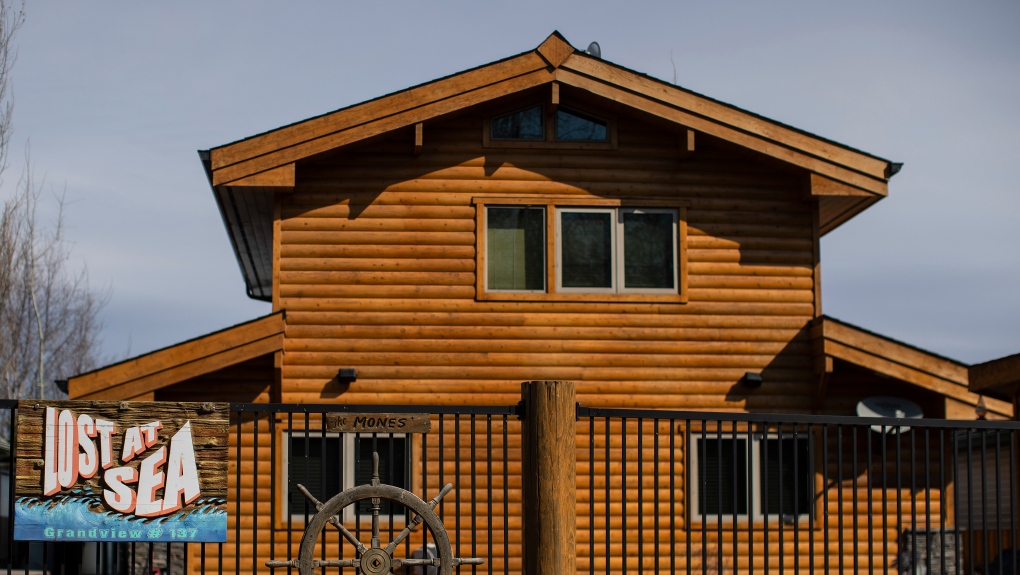What is changing about Canada’s capital gains tax and how does it impact me?

The federal government’s proposed change to capital gains taxation is expected to increase taxes on investments.
After unveiling plans to spend billions of dollars to boost Canada’s housing supply and social programs, the federal government is framing its plan as a fair way to offset those investments and prevent younger generations from inheriting a bigger deficit.
“I understand for some people this may cost more if they sell a cottage or a secondary residence. But young people can’t buy their primary residences yet,” Prime Minister Justin Trudeau told reporters Tuesday in Saskatchewan.
Here’s what you need to know about the change to capital gains taxation.
What is changing?
In a bid to make rich individuals and corporations pay more taxes, the federal Liberals said they will increase the capital gains inclusion rate — the share of capital gains that is taxed — from 50 per cent to 67 per cent. The change will apply to those with more than $250,000 in capital gains in a year as of June 25. All corporations and trusts will also have to pay taxes on a bigger portion of their gains.
The government said the change will affect the wealthiest 0.13 per cent, about 12 per cent of Canada’s corporations, as well as Canadians with an average income of $1.42 million.
The lifetime exemption limit for farming and fishing properties and small business shares is also increasing.
What is capital gains tax?
The capital gains tax is the tax individuals pay when selling an asset or capital property. Capital gains are the profits from that sale. Common types of capital properties include cottages, securities (such as stocks, bonds and units of a mutual fund trust), land, buildings and equipment you use in a business or a rental operation, according to the Canada Revenue Agency’s website.
How much do I pay?
Canadians must report taxable capital gains as income on their tax return. Under the Liberals’ new plan, the capital gains inclusion rate would rise from 50 per cent to 67 per cent for those with more than $250,000 in capital gains in a year.
A capital gain is the difference between the sale price and the total of a property’s purchase price, including acquisition costs, and any expenses incurred from the sale.
Capital gains example
This example uses the current capital gains inclusion rate that requires half of the capital gains to be taxed. If you sold an asset for $500,000, with a purchase price of $100,000, your capital gain is $400,000 and the taxable capital gain is $200,000.
Once the new rate of 67 per cent takes effect on June 25, the capital gains tax will be higher for amounts over $250,000, but amounts $250,000 and below will be taxed at the old 50-per-cent rate.
How does capital gains tax affect homeowners?
Many Canadians could feel the impact of this tax change, such as through the sale of their cottages and other secondary residences, or rental properties.
“I think that even middle-class Canadians could be dramatically impacted by this,” said Leah Zlatkin, mortgage broker and LowestRates.ca expert, in a video interview with CTVNews.ca. “If you look at the appreciation and property values in the last three or four years, there are a number of people who bought cottages before COVID when cottages were very cheap. And now if you were to sell that same cottage, the cottage has gone up four times, five times its value.”
You realize a capital gain when you sell your home, according to the CRA’s website. You don’t have to pay tax on the gain if the property was solely your principal residence for every year you owned it. A principal residence applies to a house, cottage, condominium, apartment in an apartment building or duplex, trailer, mobile home or houseboat that an individual usually inhabits.
In addition to people who purchased second homes for recreation or to earn extra income, some affected by the change may have purchased these properties as part of their retirement plan. You can only designate one home as your principal residence for each year.
John Fincham, a broker with Re/Max Parry Sound Muskoka Realty in Muskoka, Ont., recently told BNN Bloomberg the change could cause a correction in the cottages and recreational property market. Some owners may rush to sell before the higher tax rules kick in amid soaring values of the properties in recent years.
He said it could also affect estate planning. “I am getting a lot of calls, mostly from people trying to keep (cottages) in the family,” he said.
What are the criticisms?
Many Canadian business owners and entrepreneurs fear the change could impede innovation.
The Canadian Medical Association is also opposed to the change in capital gains taxes. The group worries the effect of increasing taxes on many doctors’ retirement investments will add “financial strain” for doctors who do not have a pension to rely on. She said many doctors incorporate their medical practices and invest for retirement inside their corporations.
Trudeau and his deputy Chrystia Freeland defended the move, saying the current tax system means a nurse, student, or carpenter could be paying income tax at a higher marginal rate than a multimillionaire who can use accountants to pay a lower tax rate.
The Liberals said the change will not affect 99.87 per cent of Canadians and does not apply to the sale of primary residences. It is expected to rake in $19.3 billion over the next five years.
With files from CTV News’ Rachel Aiello and Spencer Van Dyk, BNN Bloomberg and The Canadian Press
View original article here Source




